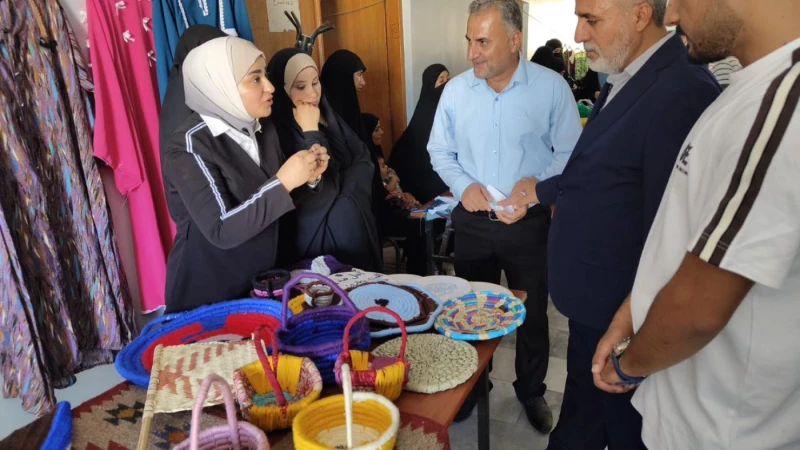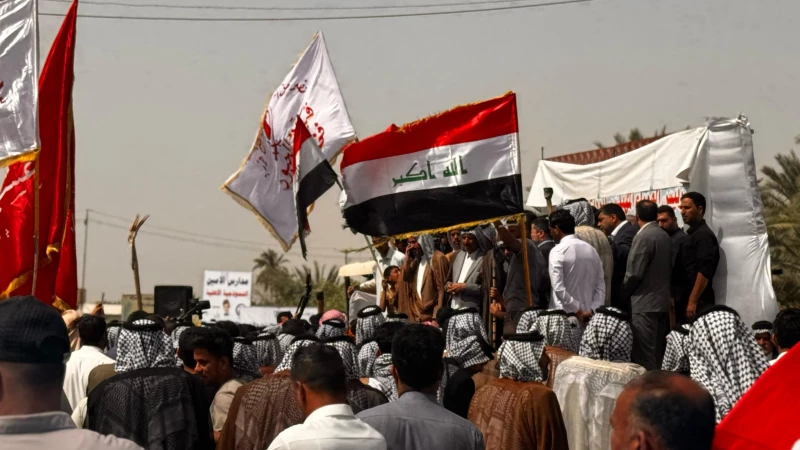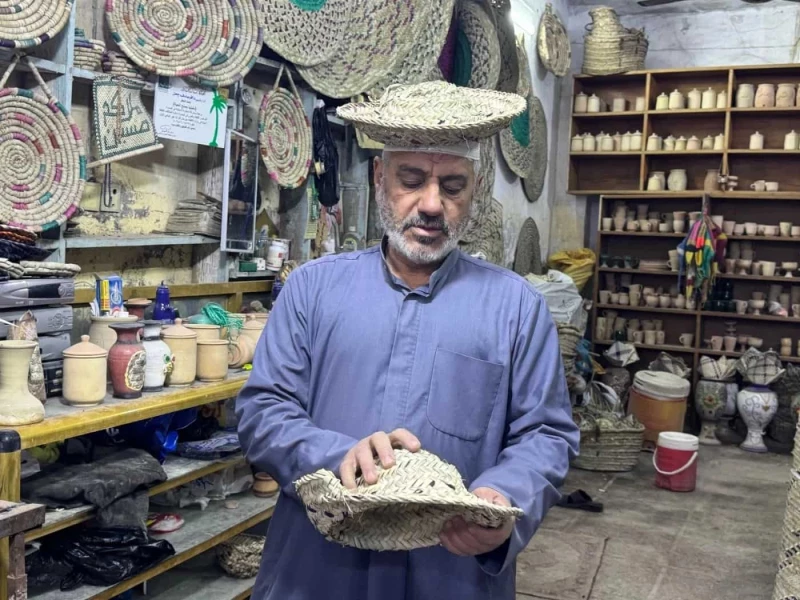NAJAF, Iraq - In the heart of al-Mishkhab, a quiet district nestled in southern Najaf, time seems to stand still. Here, beneath the warm sun and among the palms, stands Al-Faisaliya Cafe, an enduring landmark since 1955, steeped in tradition, memory, and cultural resonance.
For nearly seven decades, this humble gathering place has been more than a café; it has served as a living archive of community life, a keeper of stories, and a sanctuary for generations of thinkers, dreamers, and neighbors.
A museum disguised as a cafe
Upon stepping through its doors, one is instantly transported to another era. The aroma of steeping tea mingles with the soft hum of conversation, while walls lined with century-old Russian samovars, Baghdadi coffee pots, and vintage radios offer a glimpse into Iraq’s layered history.
These are not mere decorations; they are artifacts carefully preserved by the café’s current owner, Muslim al-Ameri, a man whose deep reverence for heritage is reflected in every corner of the space.
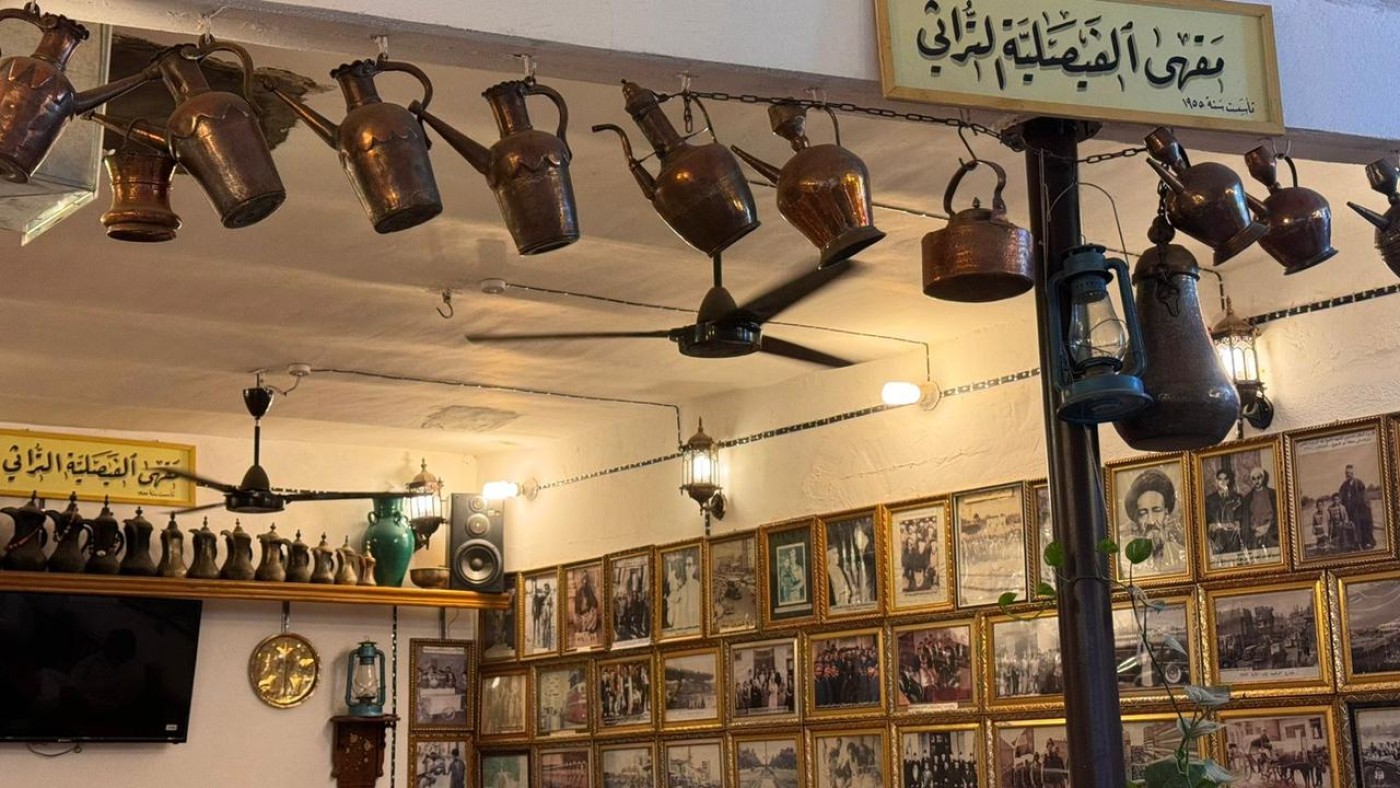
“I did not collect these pieces for profit,” Ameri tells The New Region, his voice calm yet fervent. “This is a form of cultural resistance. Each piece tells a story, each object carries a soul.”
The collection also includes historical photographs, sepia-toned portraits of poets, leaders, and everyday citizens who shaped the identity of al-Mishkhab and Iraq at large. Some of them witnessed the early years of the modern Iraqi state. Their presence lingers in the black-and-white stillness, inviting visitors to reflect on the passage of time.
The story behind the name
Al-Faisaliya Cafe owes its name to King Faisal I, who visited al-Mishkhab in the early 20th century. In honor of that royal visit, the town was briefly renamed al-Faisaliya, and the café opened decades later, adopting the name as a tribute.
“The name immortalizes that moment in history,” Ameri explains. “We have kept it ever since.”
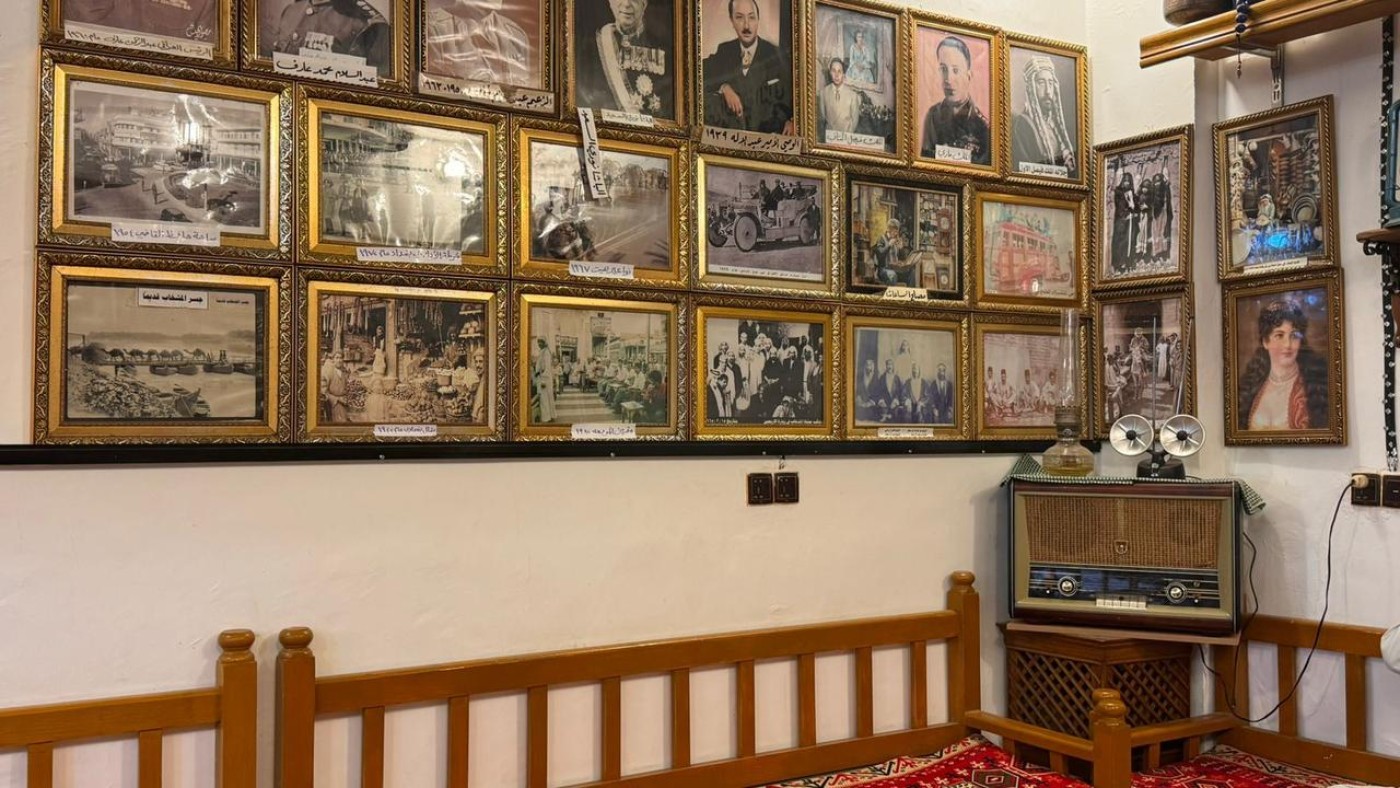
Today, the cafe continues to serve not just tea but a tradition of hospitality and discourse. Writers, educators, tribal sheikhs, and legal professionals still gather here to debate, reflect, and remember. “This café isn’t just mine,” Ameri says. “It belongs to the city.”
Memories steeped in every cup
For Ali al-Shammari, a longtime regular, the connection to Al-Faisaliya runs deep.
“My relationship with this place began in childhood,” he recalls. “My grandfather used to bring me here in the 1970s. Every chair, every shelf, every photograph, it all takes me back to a more innocent time.”
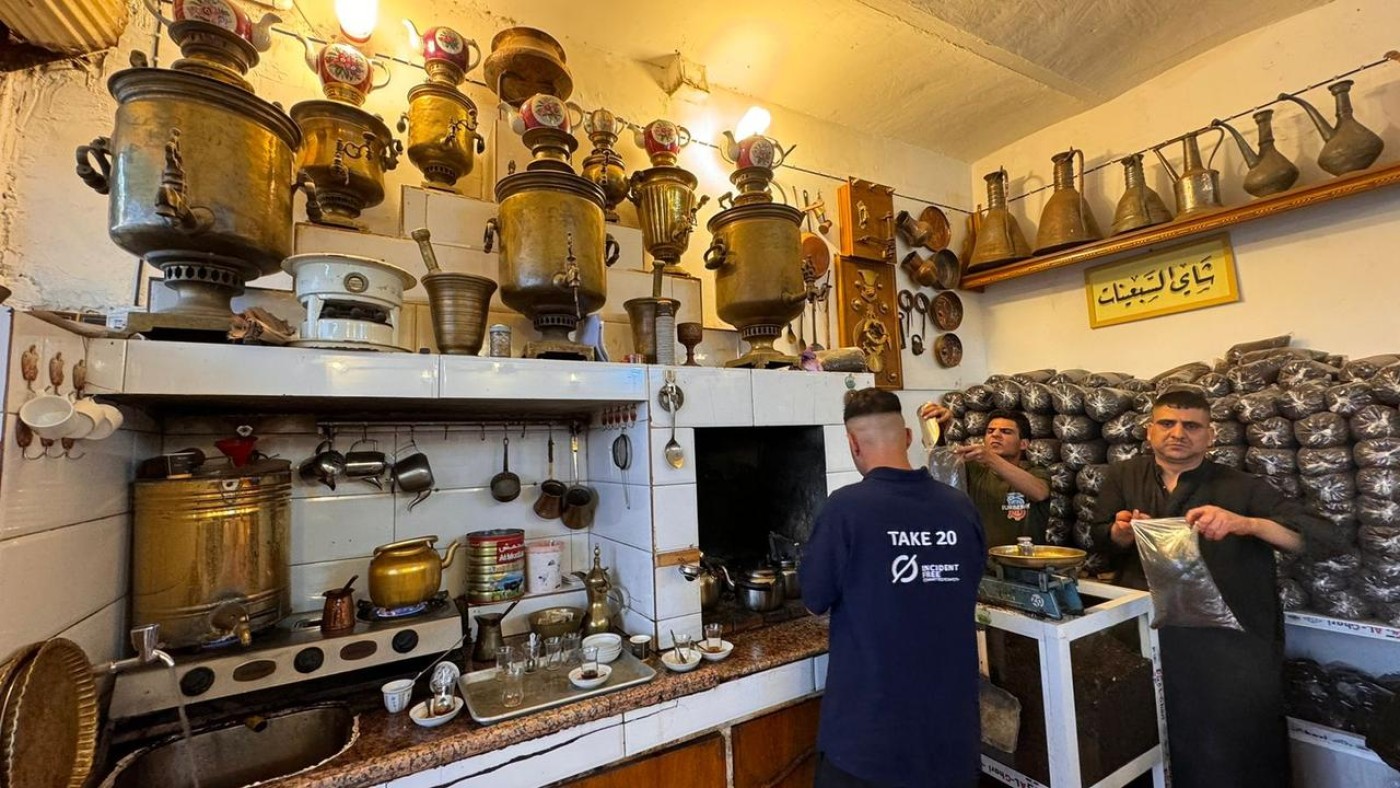
And that sentiment is not rare. Patrons speak of the café in tones usually reserved for family or sacred spaces. It’s not nostalgia for its own sake, but reverence for a place that held the community together during decades of change.
An ode to cultural memory
The cafe has not only captured imaginations; it has inspired poetry. Historian and poet Dr. Adnan al-Barshawi has been a frequent guest at Al-Faisaliya. For him, the café is one of the rarest heritage sites in southern Iraq.
“It documents a long and important history of social and cultural life in Najaf,” he tells The New Region. “Its significance goes beyond architecture or age, it’s a spiritual landmark.”
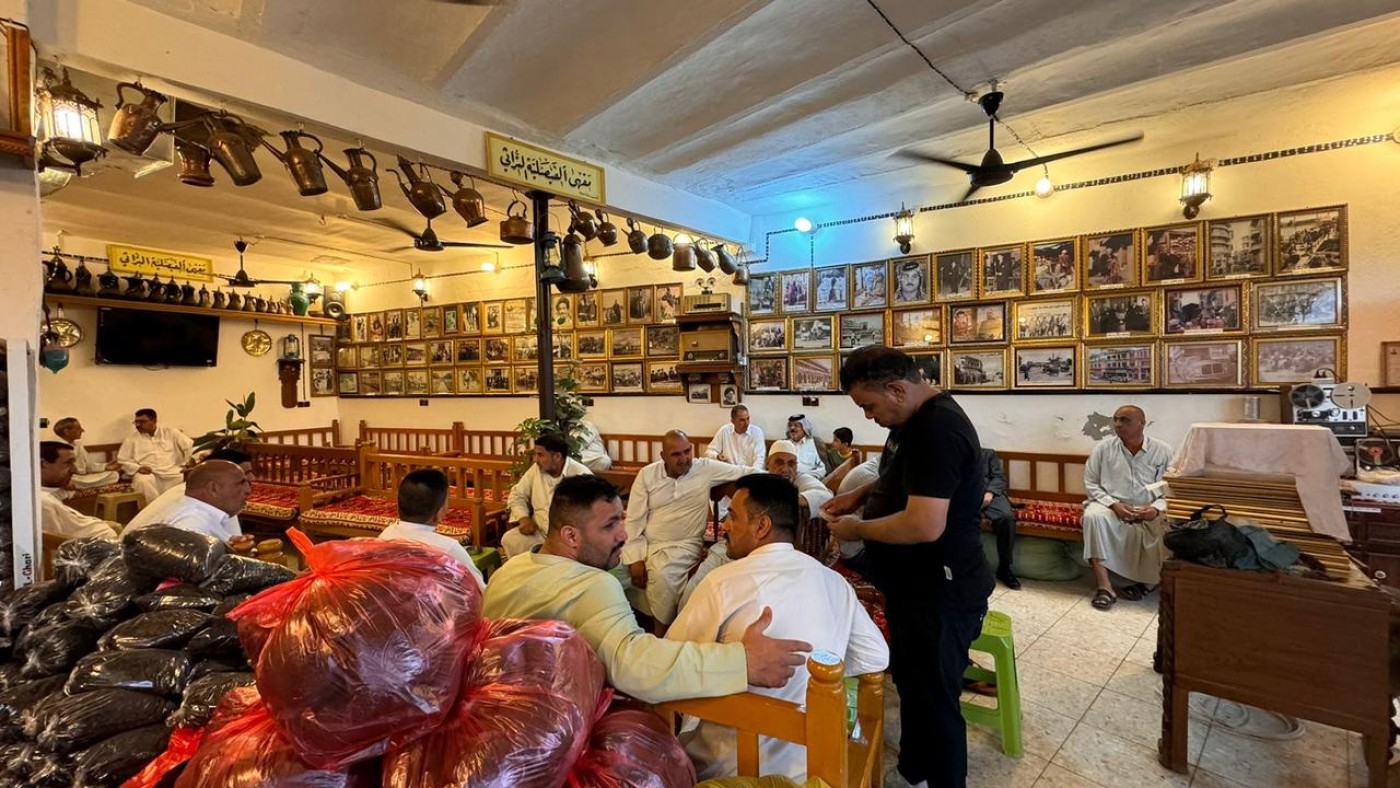
In tribute, Barshawi penned verses that echo the atmosphere of the cafe:
Stop at Al-Faisaliya Cafe and you will see
A cafe adorned with the fragrance of al-Mishkhab
In the visitors’ conversations are glories
Gems that captivate the heart with their answers
And in the amber of al-Mishkhab is a flavor
As if delicious tea were served as a drink
The poem by Barshawi captures the soul of Al-Faisaliya Cafe. It invites readers to pause and take in the café’s atmosphere, where every conversation is a “gem” of wisdom and memory. The “amber of al-Mishkhab” symbolizes the warmth and richness of tradition, while the act of serving tea becomes a metaphor for offering heritage itself, steeped, fragrant, and unforgettable.
A celebration of legacy
This year, Al-Faisaliya Cafe marks its 69th anniversary, and the town is preparing a cultural celebration in its honor. Artists, historians, and townsfolk will gather to reflect on its past, share stories, and breathe new life into a venue that has never lost its soul.
In a world always rushing forward frenetically, places like Al-Faisaliya offer a rare chance to pause, sip, and remember. They remind us that heritage is not housed in museums alone; it lives in the clink of teacups, the murmur of conversation, and the care with which a city remembers its roots.


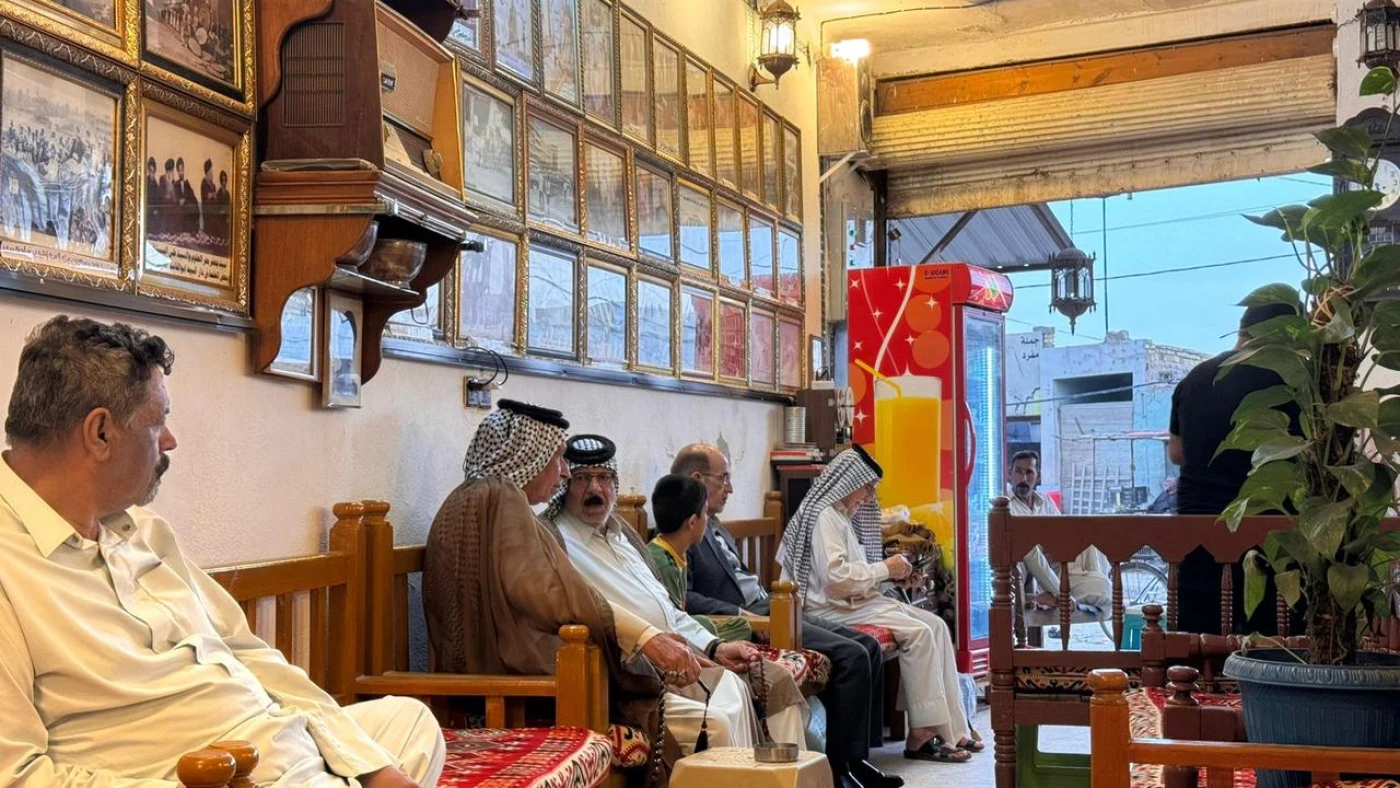
 Facebook
Facebook
 LinkedIn
LinkedIn
 Telegram
Telegram
 X
X
